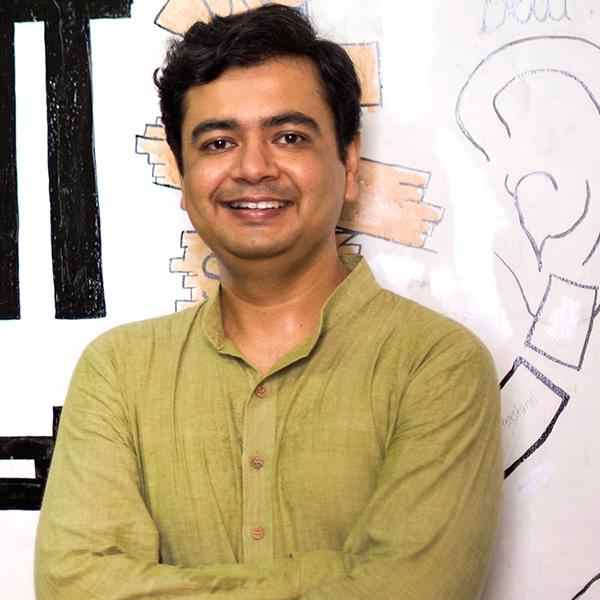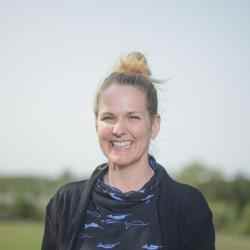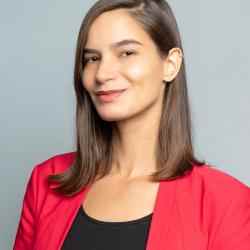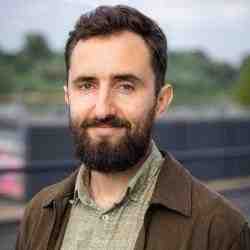Introduction
Gaurang is building a national movement, led by youth, to transform young people to active citizens and build a nation they want to live in, where they can achieve their aspirations. Through spaces to dialogue their roles and responsibilities in democracy and India’s development, Gaurang is getting the youth involved in solving social and political issues.
The New Idea
Faced with extremely low youth engagement in India’s democracy, Gaurang is building a national effort, led by committed young people in every state, to get young Indians to become active citizens in the socio-political space. Gaurang takes young people through a journey that enables them to realize their own values and aspirations. Through this journey the youth understand that the only way for them to achieve their aspirations is through active participation in nation building, through solving social problems they see in their community, register as voters, make independent and informed choices about who they vote for, and questioning and holding elected representatives accountable for building the India that will support them in achieving their ambitions.
Although Gaurang’s vision is to have youth participate in democracy as active citizens, it is critical that his own work remain non-partisan. To ensure this, Gaurang creates journeys for young people from “self to society to state,” where they first start by exploring their own inner conflicts, about gender norms or religious stereotypes. Once they have examined their own values, assumptions, where they come from, and make independent informed decisions about what they want to believe, they then engage in solving similar conflicts for others around them in their community, thus feeling a stake in solving their society’s problems. The final manifestation of their stake in society is to vote as per their independent beliefs, and hold their elected representatives accountable. The focus on self-transformation, and not the agenda of any one political party, keeps Gaurang’s work strictly non-partisan. But more importantly, the youth feel the freedom to exercise their own critical thinking for the first time, solve their own problems, and see the value of this process in their own life, that attracts them to be part of this movement and stay engaged.
Gaurang is working with the Gujarat State Election Commission to engage first time voters in his transformation process, to get them registered as voters, and caste informed votes based on their independent critical thinking. Gaurang’s work has enabled the State Election Commission to achieve their mandate of increasing youth voter registration and turnout. Using his success in one state, Gaurang is lobbying with the National Election Commission to engage youth across the country to increase their participation in democracy. Gaurang has partnered with India’s national network of youth organizations to scale his processes in Gujarat in every state, and is poised to run a country-wide campaign to make young people active citizens in shaping the India they want to live in.
The Problem
In India’s last national elections in 2014, there was an over 60% voter turnout, the highest ever turnout. However, only 2.7% of the voters were 18-20 year olds, whereas as the latest 2016 census shows that 37% of India’s population is under 20 years. In 2014, India also elected its oldest Parliament, with only 12 out of 552 members below the age of 30 years. This shows that there is very limited youth participation in India’s democratic processes. This problem will aggravate, since by 2020, India will have the world’s largest youth population, with 1 million Indians turning 18 every month.
Gaurang believes the reason for youth feeling disenfranchised from the socio-political space is the lack of opportunity for youth to be critical thinkers, with independent thoughts and opinions. The classroom is a not a space that allows for independent thinking, as the Indian education system focuses on rote learning, therefore encouraging reproducing existing narratives, and not coming up with one’s own. The home is not such a space, as the narrative of not questioning elders, not questioning traditions, rituals, religion, beliefs, is strong across all Indian classes, ethnic groups, religions. Currently, the only groups engaging youth in socio-political issues are politico-religious extremist groups, for the purpose of recruiting them to be the foot soldiers of political parties. These groups feed their own ideology to the youth, further suppressing their independent critical thinking.
Gaurang also believes that without independent critical thinking the fabric of democracy is breaking down in India, as who the youth vote for is not a true choice they are making, but a manifestation of who their family, caste, ethnic group are voting for, as corroborated by a 2015 World Politics paper, “Ethnic Inequality and the Ethnification of Party Systems: Evidence from India.” In addition to not voting based on their true beliefs, lack of critical thinking is also preventing youth from questioning the government and their politics- a critical role for constituents of any democracy.
The Strategy
Gaurang, through his organization, Sauhard (Empathy), runs a Fellowship for college students, where he takes them through a transformative journey of, first, self-discovery of their own beliefs and aspirations, then contributing to solving social problems to create a society that will enable them to achieve their aspirations, and finally participating in political democratic processes, to build the India they aspire to live in. He takes the Fellows through a year of workshops, mentorship, exposure trips to spend time in communities very different from where they come from. For example, Vishnu, who realized that he had a dislike for Muslims because his family had always told him that he didn’t get into the college he wanted because they had reserved seats for Muslims. He studied and understood how the reservation (affirmative action) system works, why it’s important, questioned what his family had been telling him. He also got to know and worked with Muslim youth and changed his assumptions and feelings about them.
The fellowship ends with the Fellows doing an action project, working with a partner from a very different background than theirs, through which they influence change of beliefs and assumptions in their own circles. For example, Farheen, who works at a mainstream TV channel, did a series of workshops with her entire team where they examined how women were being portrayed in the soaps on the channel, why they thought of women in that way, and changed their assumptions, and eventually the portrayal of women in their story lines. Gaurang has taken more than 1000 young people through these transformation journeys, who have become Gaurang’s team to work across the country.
Armed with a 1000-strong youth team, In 2015, Gaurang started building a national conversation with youth about participating in democratic systems. In the “Unmanifesto” campaign, 40 Fellows did youth parliaments, consultations and focus groups with 17,500 young people, in real life and virtually, all over India, where they critically thought about the policies of their current government, challenged them and expressed their independent demands to their elected officials. This youth manifesto was then presented to elected officials in a public ceremony so they could be held accountable for delivering on them. Through such national campaigns, and by co-leading India’s largest youth movement, Commutiny, (an initiative begun by Ashraf Patel, an Ashoka Fellow), Gaurang is building a national level conversation on youth needing to have independent opinions, critically think, and be active citizens choosing and holding their governments accountable.
In 2017, Gaurang partnered with the Election Commission in Gujarat on the “Mere Mat Se Mera Mat” campaign (“My Vote According to My Opinion”). He convinced them that his work with young people will help the Election Commission achieve their mandate is to increase the voter registration and voter turnout of young people in the State Elections in November 2017. In Phase I (2 months) Gaurang’s team is finding gaps in the voter registration process, like voters’ documents getting lost because of transportation, slow processing because of non-digitization, and reporting these to the Election Commission. Along with the Election Commission and local municipal officers, Gaurang is creating a smooth and easy voter registration process to make it easy for first time voters to get registered. However, Gaurang knows that merely being registered is not enough to take the youth to the polling booth to vote. For them to actively engage in democratic processes, they need to go through a journey where they discover their own beliefs and aspirations, and understand that they have to participate in socio-political processes to stay true to their own beliefs and achieve their own aspirations. That’s why in Phase II (2 months) Gaurang’s team members work with the newly elected voters to host dialogues on why it’s important to vote, and their rights and responsibilities as citizens in a democracy. In Phase III (2 months), the young voters are taken through a process of conversations, exposure visits and workshops to examine their own beliefs and assumptions, arrive at what their independent values and aspirations are, so they vote based on them.
Gaurang has so far got 6.5 million first time voters to register in Gujarat. He is using his success in Gujarat as proof of concept to partner with the National Election Commission, and roll out his 3-phase campaign throughout the country. Gaurang has already signed on Commutiny, a national network of youth organisations, and his 1000 member youth team spread across the country to implement the campaign, and is well positioned to roll out the program nationally to increase participation of young people in the next National Elections in 2019.
The Person
Gaurang comes from a family of Freedom Fighters, and grew up with the strong values of working and sacrificing for social change and development. Gaurang grew up in a neighborhood dominated by the Rashtriya Swayamsevak Sangh (National Service Corps)- the ideological youth wing of India’s Hindu right wing political party. Without really knowing or understanding their beliefs, Gaurang got associated with them because they controlled the only playground in the area, and he was passionate about participating in sports. Gaurang was led to believe by this group that all Muslims in India are committing acts of terrorism against India and should all go to Pakistan.
Gaurang was in college when the deadly communal riots broke out in Gujarat in 2002, where Muslims were being targeted and killed by right wing Hindu mobs. Although Gaurang had grown up thinking Muslims in India should go to Pakistan, he was shocked by the carnage of many of his own Muslim peers. Gaurang was the first one to take all the Muslim students from his hostel and take them to safety in the Principal’s office. Under the mentorship of his college Principal, Father Vinayak, Gaurang started questioning his own stereotypes about Muslims, Dalits and those unlike him.
Gaurang started volunteering in relief camps after the riots. From the stories of survivors Gaurang heard here, he wanted to explore telling people’s stories in a creative way. Gaurang joined a media collective called Drishti (Sight)in 2005, where he created and built a program called Nazaria (Perspective), which focused on youth in colleges in Gujarat, through creative means like films, theater and art, exposing them to alternate perspectives and questioning their own beliefs and assumptions about other religions, ethnic groups, and people different from them.
During these discussions with youth, Gaurang realized that the generation of youth in Gujarat had all experienced conflict, and the riots had affected them all actively, or had, at least, influenced their beliefs. He felt that it was imperative that he use this experience of their conflict to get them to explore their beliefs, and transform them. Gaurang started Sauhard in 2011, to grow his work with young people, and building their questioning and critical thinking skills, beyond just the use of creative media.

 Tile image
Tile image


